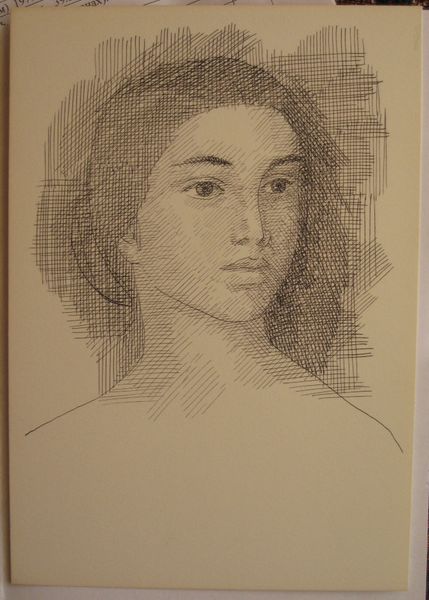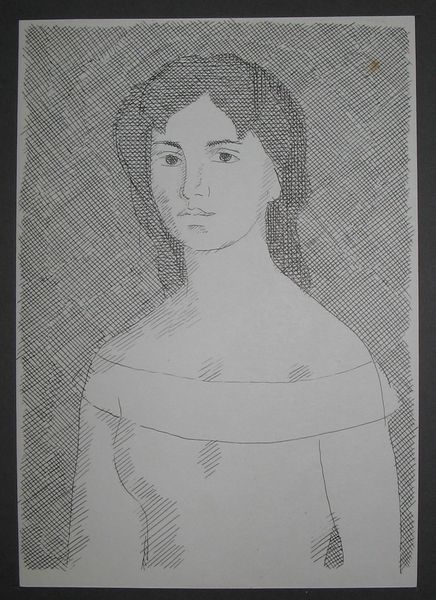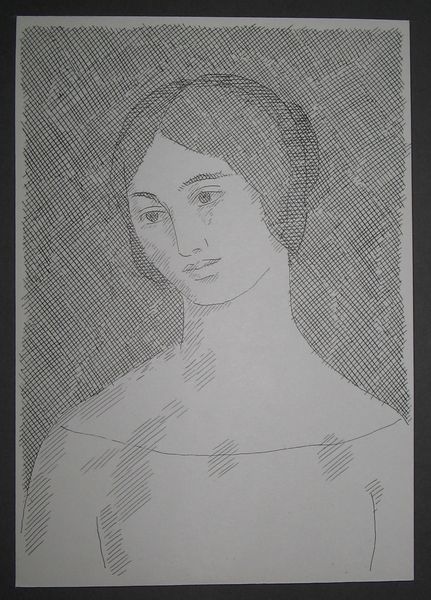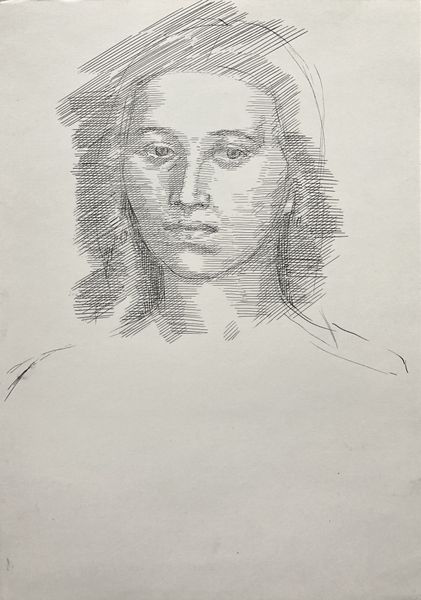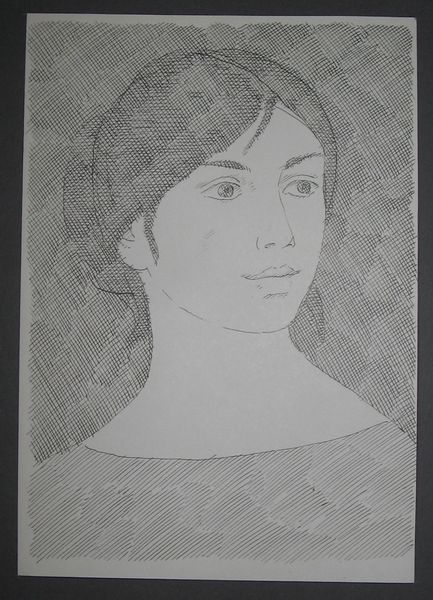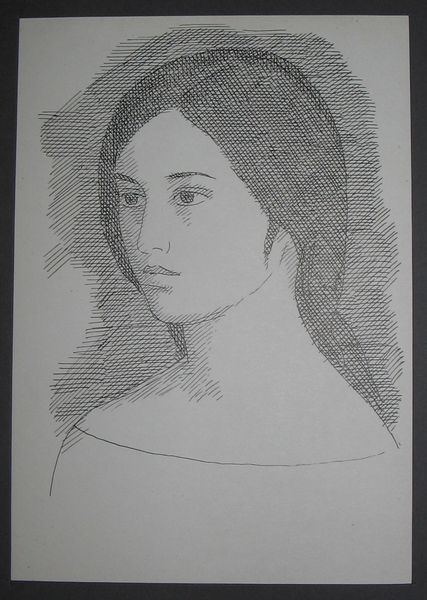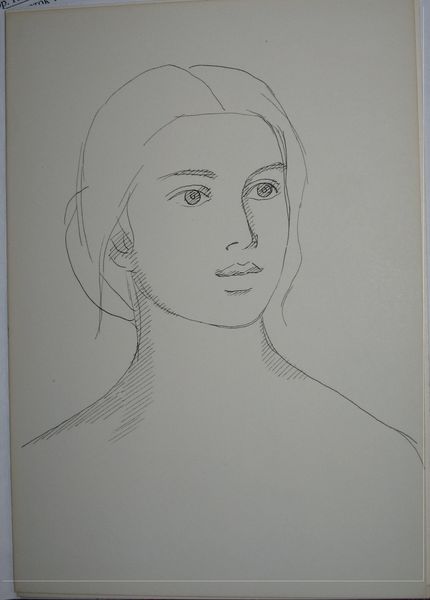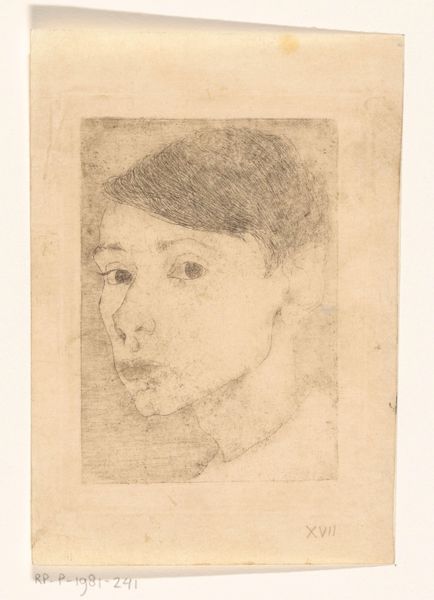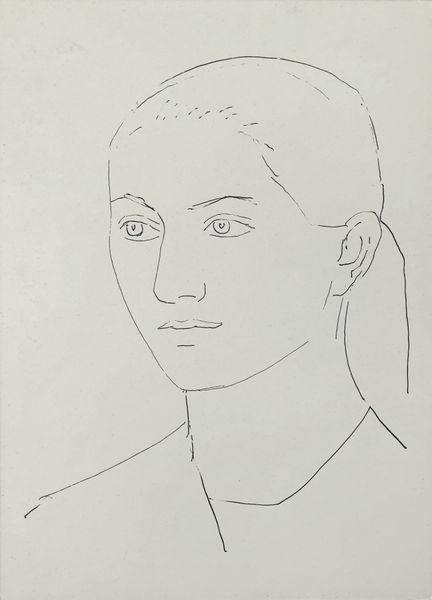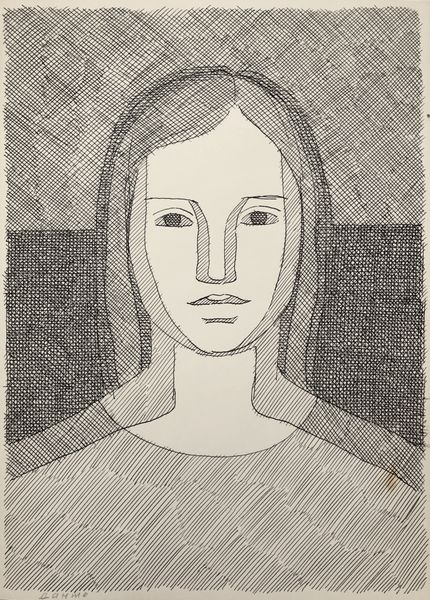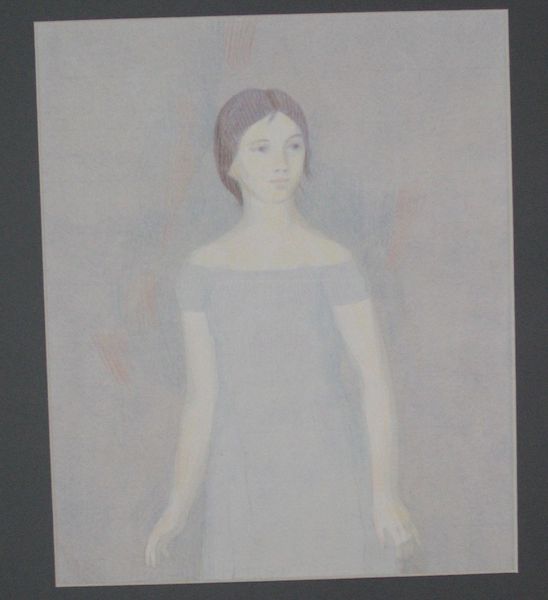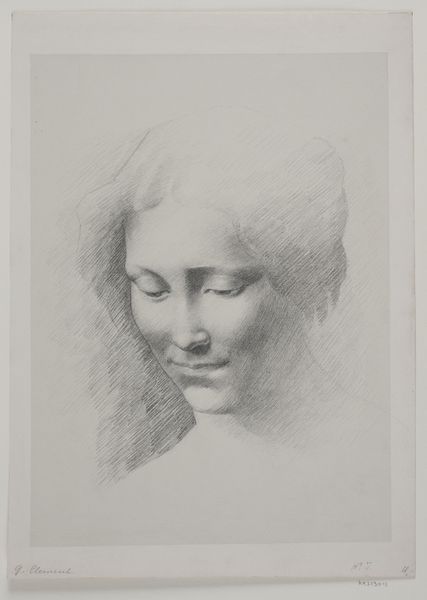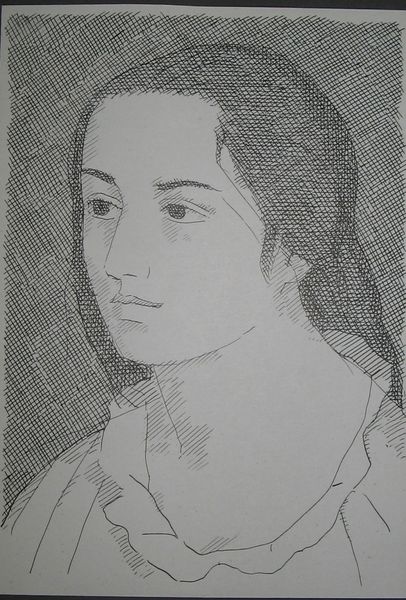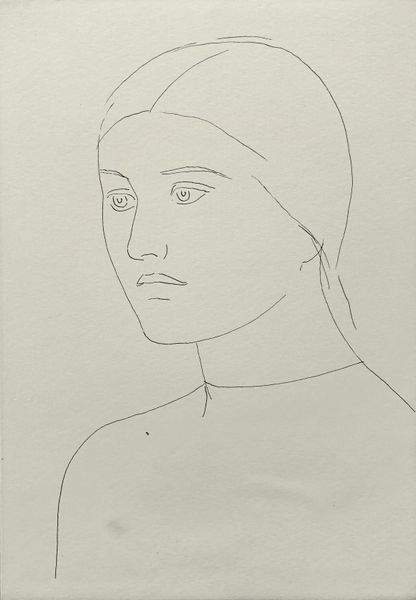
drawing, pencil
#
portrait
#
white colour balance
#
pencil drawn
#
drawing
#
light pencil work
#
self-portrait
#
head
#
face
#
pencil sketch
#
light coloured
#
figuration
#
portrait reference
#
white focal point
#
pencil
#
portrait drawing
#
tonal art
#
academic-art
#
remaining negative space
#
realism
Copyright: Hryhorii Havrylenko,Fair Use
Curator: Here we have Hryhorii Havrylenko's "Female Image," a pencil drawing dating from 1970, held in a private collection. What strikes you initially? Editor: The fragility, the almost ghostly quality. It feels very raw, very process-oriented. The lightness of the pencil work is remarkable. Curator: It's interesting you pick up on that, as it coincides with the evolving accessibility and use of such simple tools within art education during this period. This was when a new generation got access to drawing. Editor: Precisely. Look at the paper itself. It's not gessoed, prepared in any grand way. It suggests an immediacy, a working sketch elevated, intentionally or not. Curator: I agree, and there is that fascinating element, during the Soviet era, the female image was very policed, often within Socialist Realism, a very constrained idea of ideal labor or patriotic self-sacrifice. What we are seeing here instead, it resists easy categorization. The subject looks very much on her own mind. Editor: You can almost feel the artist's hand moving across the page. And the tonal qualities, it’s almost as if light itself is the medium. The very slight indications, this delicate mark-making speaks volumes about portraiture reduced to its essence, beyond ideology or other pressures. Curator: Yes. And how does one frame this when one sees its cultural significance? The artist perhaps subtly carving out this quiet space, an intimacy with its female subject that maybe goes beyond the conventions of state art. Editor: And also questioning artistic hierarchy. We see graphite elevated, the 'humble' pencil brought into the realm of ‘fine art’ itself. The act of simply marking the surface of paper transformed into a portrait. It asks us to question what materials constitute valid artmaking. Curator: These whispers can also lead us towards more thoughtful discussions about not only production during that period, but also about representation and its discontents. Editor: Absolutely. And perhaps the beauty of this piece lies exactly in its apparent simplicity, as so often true resistance quietly hides within unassuming form.
Comments
No comments
Be the first to comment and join the conversation on the ultimate creative platform.
